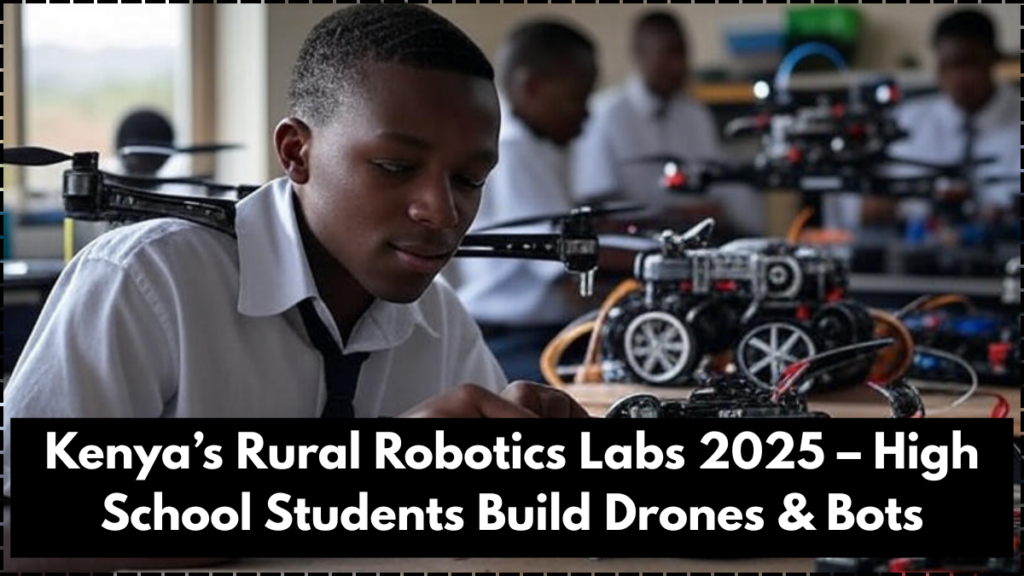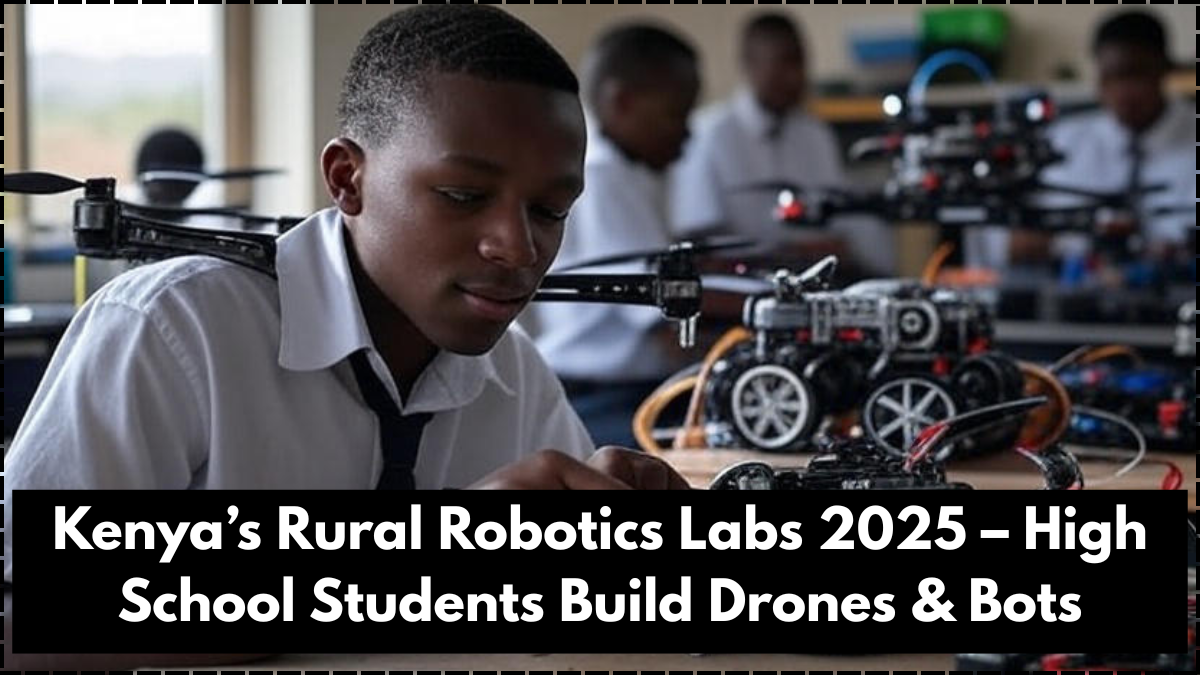In 2025, Kenya robotics labs 2025 are transforming rural education by introducing high school students to drone and robot building. These new facilities are part of a nationwide effort to bring advanced STEM learning to underserved areas. Backed by government grants and local tech partners, these labs aim to make innovation a hands-on experience for students who previously had little exposure to high-end tools and coding platforms. The project also plays a key role in promoting rural tech education Kenya, ensuring that no community is left behind in the digital era.
The initiative is not just about teaching theory. Every student gets to work on real-life projects—building quadcopters for agriculture, assembling bots for community service, and even programming automated irrigation systems. By 2025, more than 50 such labs are expected to operate across rural counties, directly impacting over 20,000 students. This marks a significant leap in bridging the urban-rural digital divide.

How the Labs Work
Each lab is equipped with 3D printers, soldering stations, drone kits, and coding workstations. Students receive mentorship from trained facilitators and visiting engineers. Learning modules are designed to combine electronics, mechanics, and software skills into practical outcomes. The curriculum aligns with national STEM goals while also adapting to local challenges—such as designing drones for crop monitoring or building bots for village health delivery.
The table below highlights the key features of the 2025 rural robotics program:
| Feature | Details |
|---|---|
| Number of Labs | 50+ across rural Kenya |
| Student Reach | 20,000+ high school students |
| Key Tools | Drone kits, 3D printers, coding laptops |
| Local Focus | Agriculture monitoring, community service bots |
| Funding Partners | Government of Kenya, private tech firms |
Benefits to Rural Students
The Kenya robotics labs 2025 program is unlocking opportunities for rural youth that go beyond the classroom. Students gain critical problem-solving skills, confidence in technology, and an understanding of how innovation can solve local challenges. For many, it’s their first chance to use professional-grade tech tools. These skills directly link to future job prospects in agriculture technology, engineering, and digital manufacturing.
By integrating rural tech education Kenya into everyday learning, the program also encourages entrepreneurship. Graduates are starting micro-projects—like drone-based crop surveys or solar-powered water pumps—that generate income and improve community life.
Government and Community Involvement
The success of Kenya robotics labs 2025 depends heavily on local buy-in. County governments provide space, internet access, and maintenance staff. Parents and community leaders attend regular exhibitions where students showcase their innovations. This engagement ensures sustainability and inspires younger children to join STEM tracks in school.
The Ministry of Education has also partnered with international donors to supply additional resources. Special training programs for teachers ensure that rural tech education Kenya is delivered effectively, blending local knowledge with modern technology.
Future Prospects
Looking ahead, the program plans to integrate artificial intelligence into the curriculum, enabling students to build smarter robots capable of autonomous navigation. Mobile robotics vans are also being discussed, which could bring equipment to even more remote areas. The vision is clear: by 2030, every rural school in Kenya should have access to robotics and AI learning facilities.
FAQs
What is the goal of Kenya robotics labs 2025?
The goal is to bring advanced STEM education to rural schools, enabling students to build and program drones and robots for local problem-solving.
How many students benefit from the program?
Over 20,000 high school students across rural counties will benefit by 2025.
What skills do students learn?
Students learn electronics, coding, mechanics, and project-based problem solving.
Who funds the Kenya robotics labs 2025 program?
The program is funded by the Kenyan government and private tech companies.
How does it support rural tech education Kenya?
It provides modern tools, skilled mentors, and practical learning experiences tailored to rural needs.
Click here to learn more
Sachin is a dedicated writer specializing in education, career, and recruitment topics, delivering clear and actionable insights to empower readers.
